Bach’s St John Passion came into the world just three centuries ago, in Leipzig at Easter 1724. This year’s Proms shower of manna from musical heaven continued with a consummately polished, sensitive and – ultimately – very moving birthday performance by Masaaki Suzuki and his Bach Collegium Japan.
Their profound familiarity with the work, and proficiency in all its idioms, bred not routine slickness but an inward intimacy that serenely bridged the gap between the liturgical rituals of the German Baroque and the music drama of today.
For all his historically-informed scholarship (right down, or rather up, to Tomasz Wesołowski’s gigantic howitzer of a contrabassooon), Suzuki (pictured below) never stints on theatrical punch, drive and contrast in his rigorously managed transitions between chorales, choruses, solo numbers and recitatives. If, in the opening acts of the Gospel story of Jesus’s betrayal, trial and crucifixion, I felt that his masterly guiding hand was weighing a little too heavily on the performers, the climactic scenes saw emotions, and musical colours, blossom and deepen.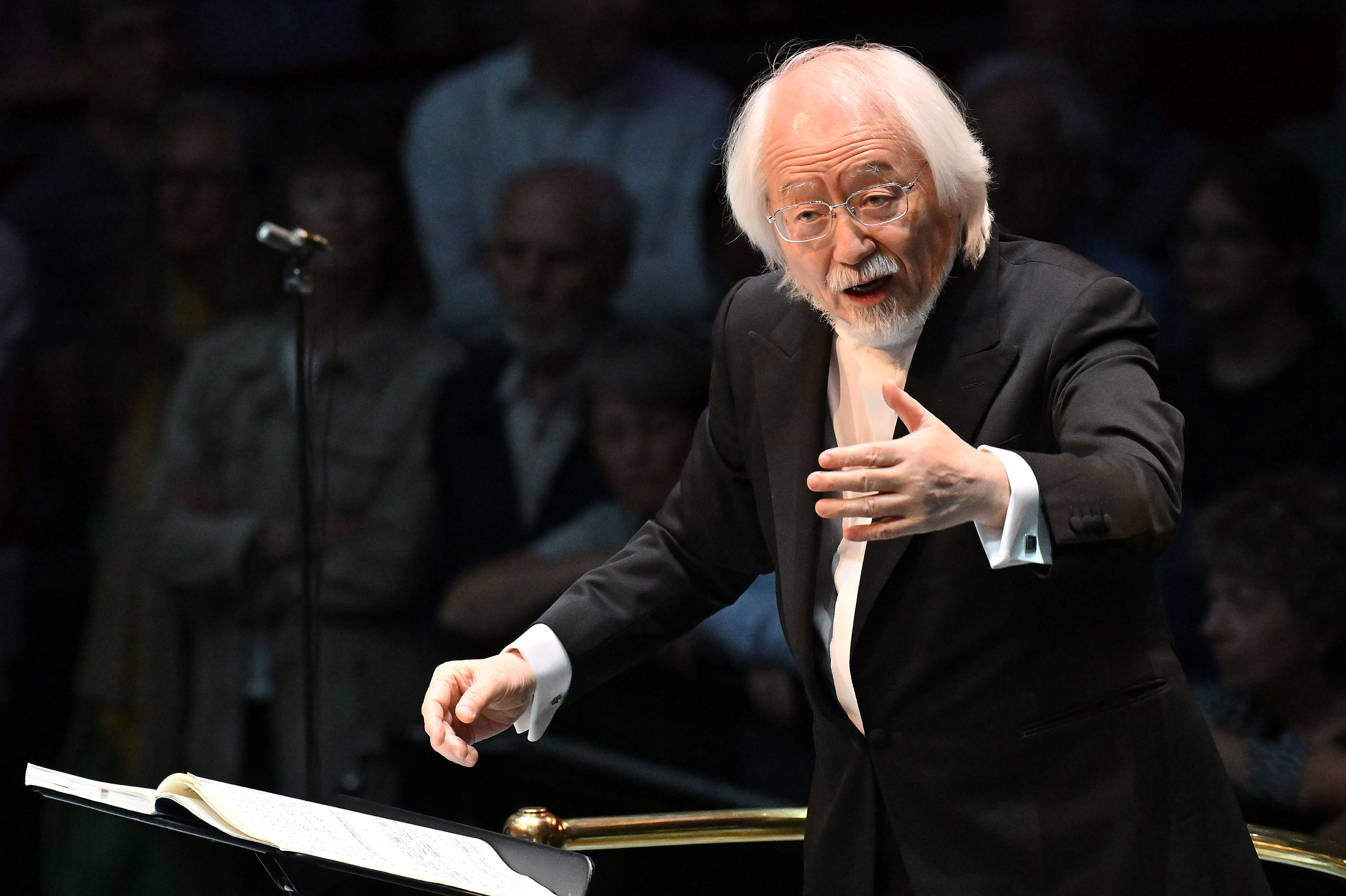
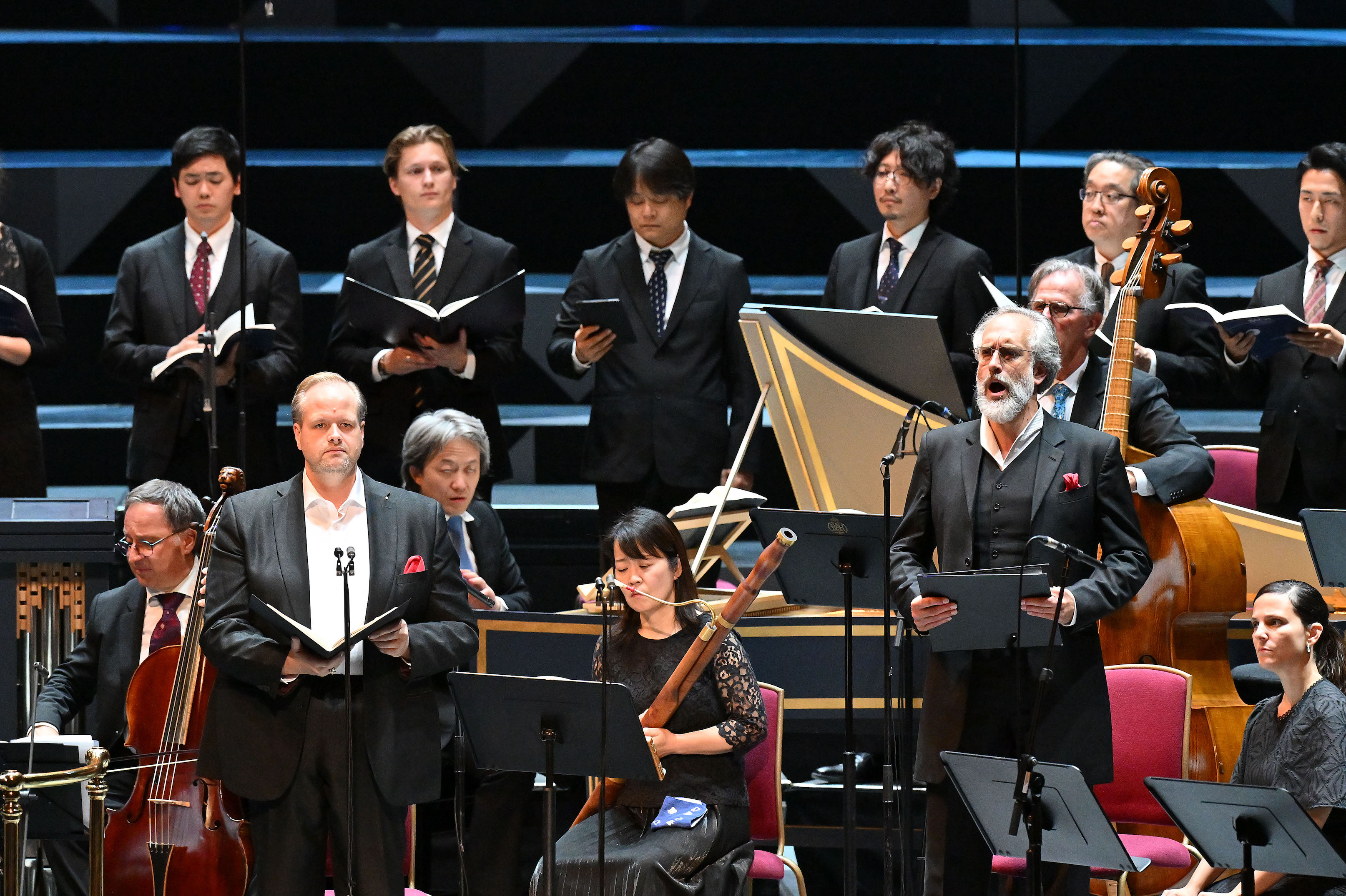
At moments in the short first part, I feared that polish might overcome passion. Bruns made a relatively light, crisp and busy Evangelist, lucid, lively and agile in his mimetic word-painting. Immler’s Jesus had an attractive aura of gentle but robust nobility but could sound slightly strained at his lower depths. In contrast, Sampson (pictured below) made “Ich folge” frisk and fly, dancing through the lines with an airborne grace, accompanied by gloriously skittish flutes (Yoko Tsuruta, Raquel Martorell Dorta). The Collegium’s woodwinds proved a consistent joy, with richly atmospheric interventions from first to last by the oboes of Masamitsu San’nomiya and Go Arai. 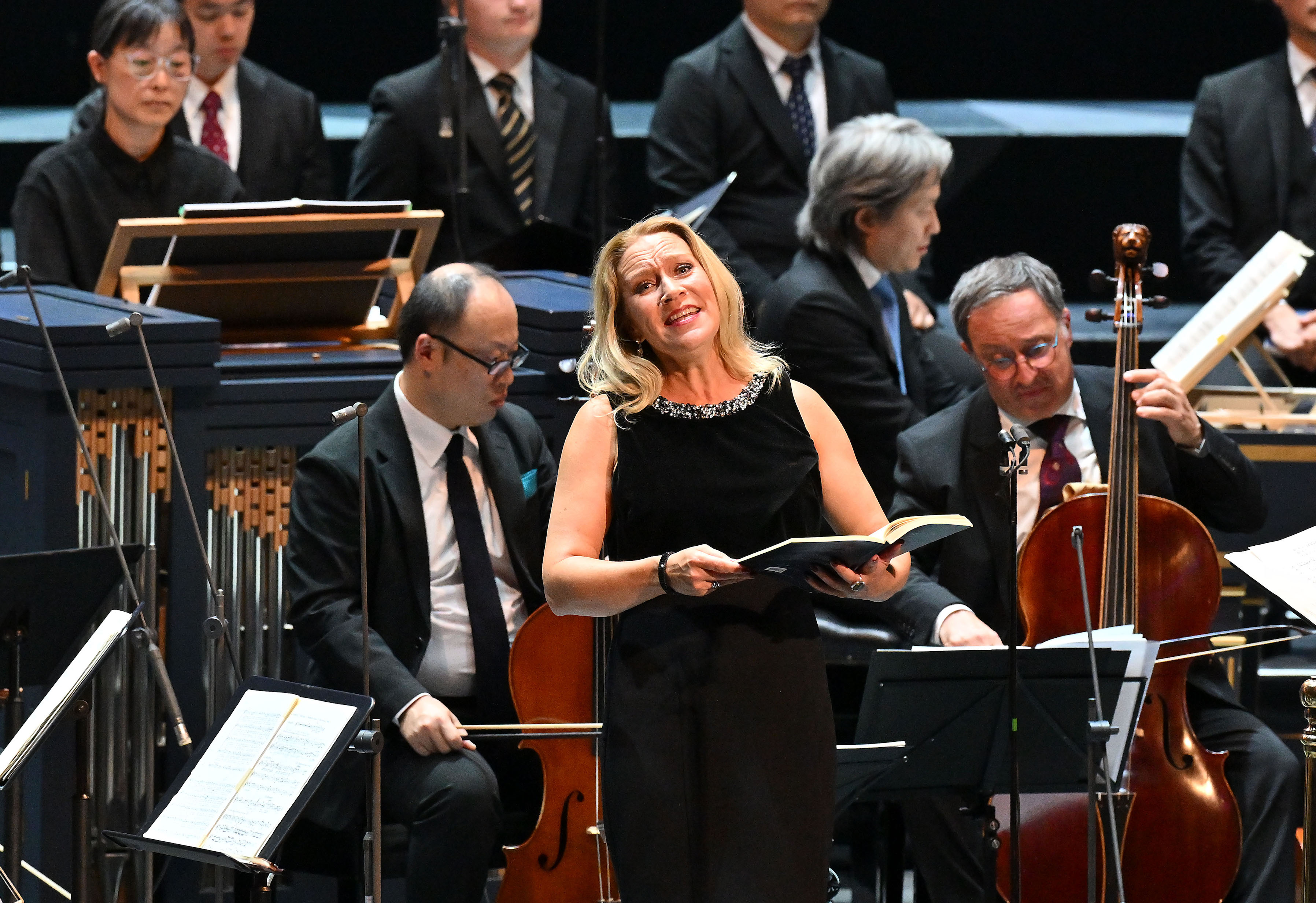
Still, the second part seemed to hit a deeper stratum of feeling and expression. As the chorus turns on Jesus, Suzuki made them snarl and spit with venomous relish as they stretched and twisted the words into warped shapes of accusation. Yusuke Watanabe made a properly doubting and divided Pilate, his hesitant voice of reason overcome by populist frenzy. Bruns injected urgency and variety into his long-haul narratives. In the bass arioso, “Betrachte, meine Seel”, Immler added touching, soaring sweetness to his grounded dignity: the result was ravishingly lovely. Capped by the limpid, liquid agony of Yoshida’s tenor in “Mein Jesu, ach!” (pictured below), with gorgeous solo excursions from Ryo Terakado’s violin, this section somehow found an even higher gear. 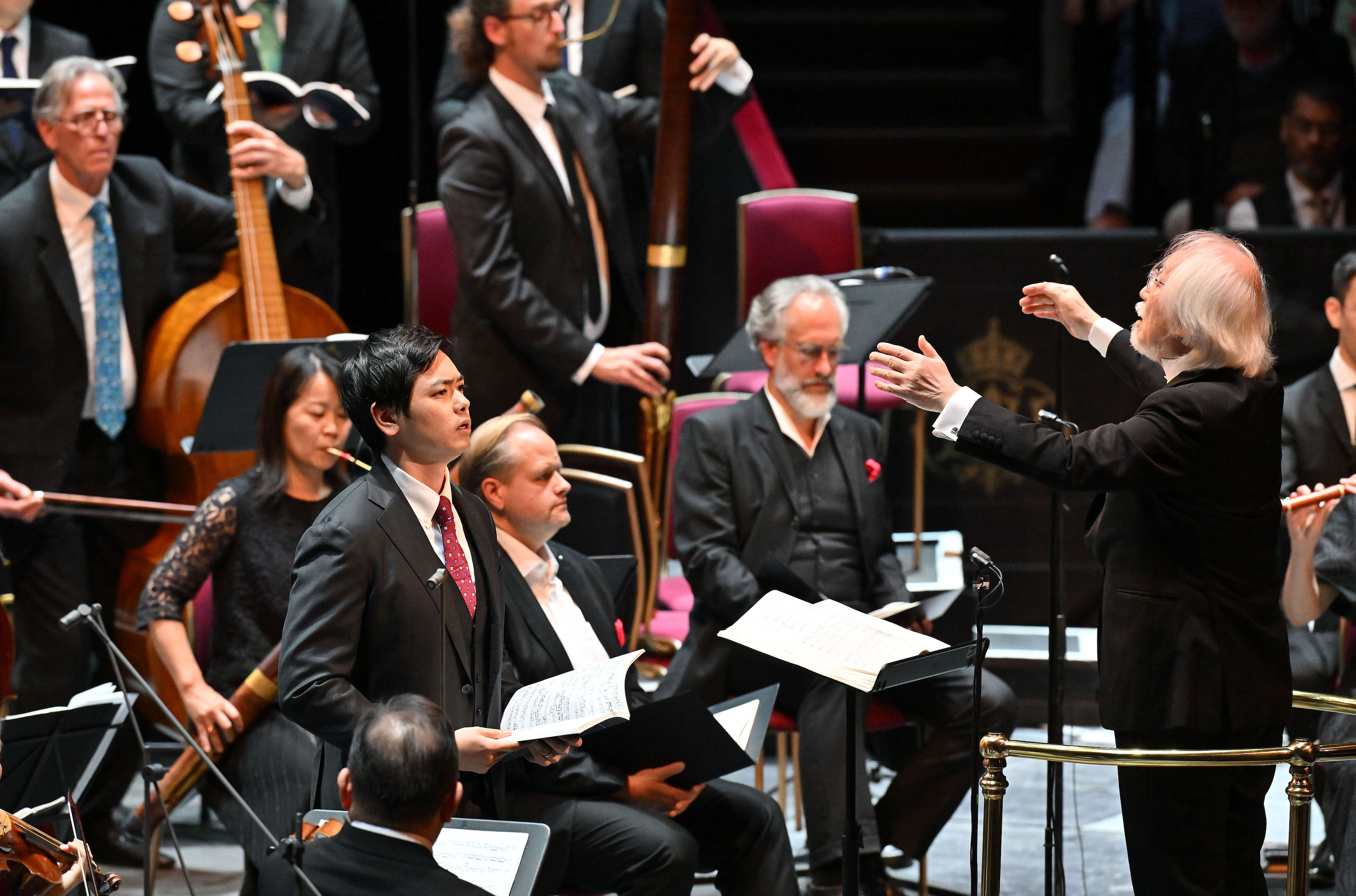
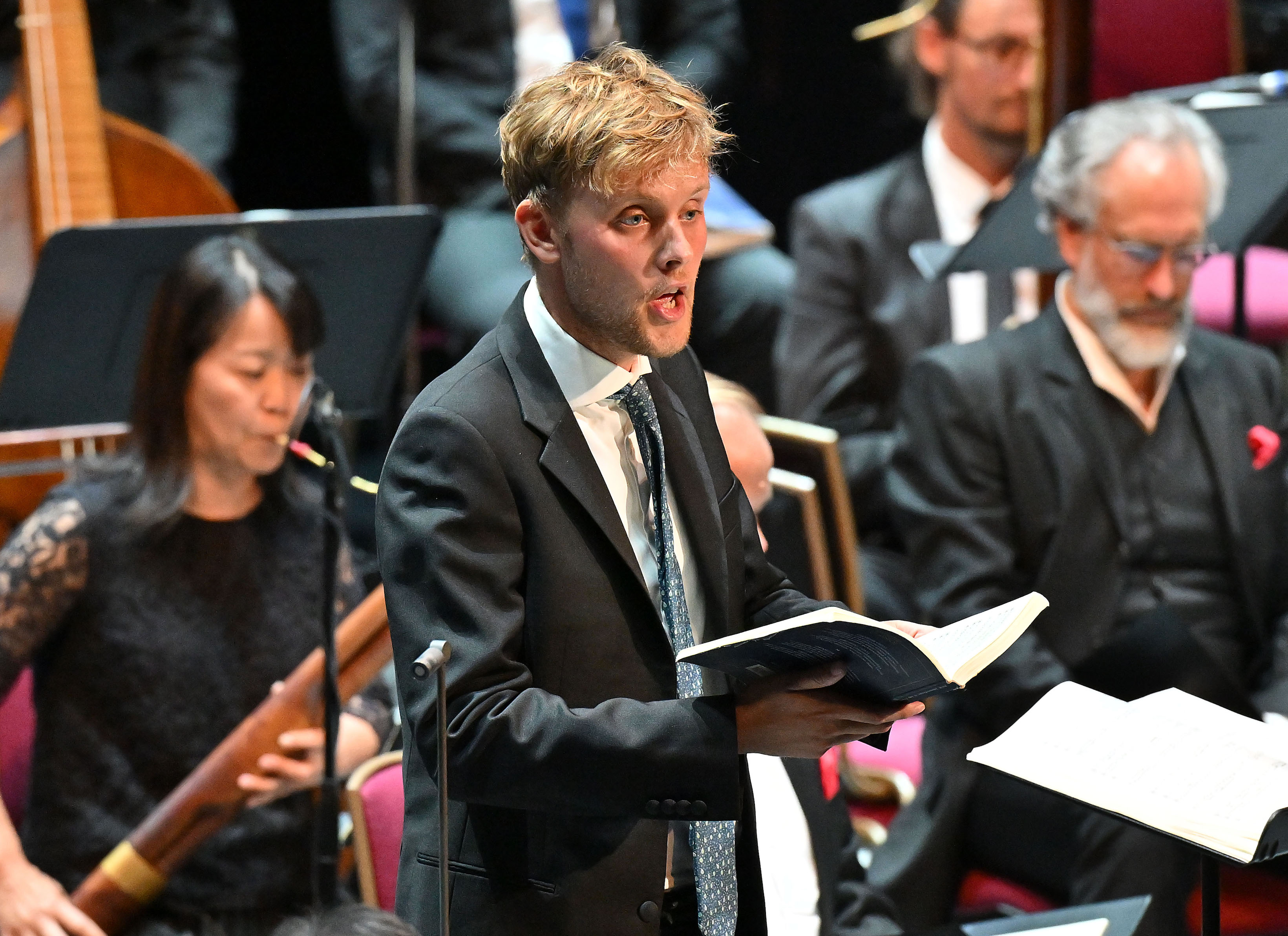
Massive yet elegant, the farewell chorale with its invocation of little cherubs (“lieb Engelein”) brings us back to the intimate, vulnerable humanity at the heart of Bach’s salvific drama. If, at the outset, the sheer practised excellence of the Collegium threatened to mask that naked pain and dread, it flooded back song by song, chorale by chorale. By the finale they, and we, had struggled through anguish to grasp all the consolation Bach so lavishly supplies.













Add comment